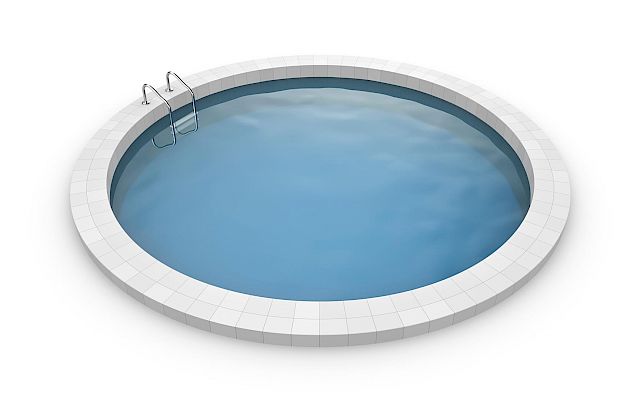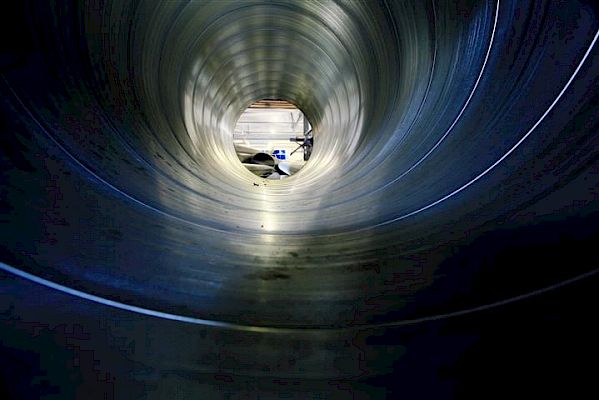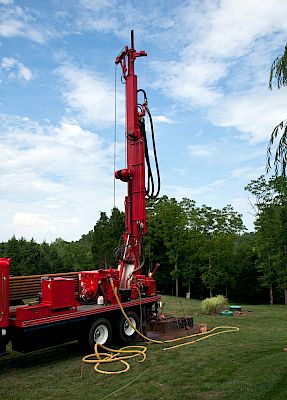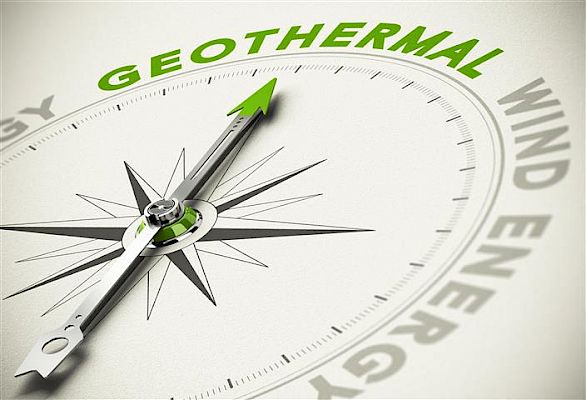-
The savings pile up.
Radiant Floor Heating. Instead of using a conventional boiler in your home to heat water and pipe it through your flooring, geothermal systems, using a water-to-water heat pump, can pass this earth energy through strategically placed pipes in your floors to provide the ultimate in radiant in floor heating.
Additional uses include hot water heating, snow melt applications, and even heating your pool. A desuperheater is part of a geothermal heat pumps domestic hot water generating system that "exchanges" the earths heat and deposits it directly into your domestic hot water tank. Couple this with a concept called "Drain Water Heat Recovery" which collects the remaining energy from household waste water and you can see the energy saving potential of these systems.
Since this heat from inside of your home was going to be rejected (thrown away) into the earth anyway, putting it into your hot water tank instead is free. The only cost for the summer water heating is the small cost of running the circulating pump that moves the water.
Read More
Does ductwork "sizing" really matter?
When asking the question of how to install a geothermal heating and cooling system a few factors come into play.
Heat loss/Heat gain, air flow, loop type and size, static pressure, CFM, duct design.
These are important topics that needs to be addressed in a properly designed air delivery system.
Sizing a geothermal system extends not only to the ground loops but the interior ductwork as well. This can be overlooked and treated with less importance than it needs to be especially when considering a geothermal system in a major home renovation.
Since Geo systems typically produce lower air temperatures, a higher volume of this air needs to be circulated. This needs to be done quietly and efficiently. Not something done when the ductwork and outlet placements are not designed to exacting standards. If the ducting is too small, the air movement will be to slow adding to inefficient energy usage. Adding more speed to the blower does not sufficiently address this issue since this simply lowers the system's efficiency.
Proper, customized design will address this issue. Using licensed professionals will ensure your geo system loops and in-house components are sized for your exact conditions thus ensuring the full advantages of cost and comfort that this technology can provide for you.
Read More
Energy efficient heating systems.
Amazing Energy Efficiency:
Geothermal heat pumps don’t create energy, they simply move it. Your backyard or parking lot has unlimited heating and cooling resources just waiting to be tapped into. Only a small amount of electricity is used to circulate that heat energy to and from your home. This allows our GeoStar units to provide $3 – $4 of heating for every $1 worth of electricity used, while current “high-efficiency” fossil fuel furnaces provide only $0.96.
Cost Effectiveness:
Geothermal heating cost savings are significant. Though geothermal systems can be more expensive to purchase up front, the cost difference will be returned through drastically lower energy bills. Most GeoStar owners see savings up to 60% on their utility bills!
Greater Comfort:
GeoStar units run only at the level needed by using variable speed motors. They slowly ramp up to speed rather than “roaring” to life like traditional units – resulting in even, consistent comfort. You won’t experience the large temperature fluctuations associated with other heating and cooling solutions.
Read More

Geothermal energy pros and cons.
Pros:
It truly is quiet:
With our units, there’s no noisy outdoor equipment to disturb the peace or clutter your yard. Some homeowners have reported checking the unit to see if it’s running. Picture it now, a backyard bar-b-que without the incessant noise of the typical air conditioner.
Longer Life & Reliability:
Because geothermal units don’t require any outdoor equipment (other than the underground loops), they are protected from the rain, snow, environmental contaminants and abuse that hinders the efficiency of traditional air conditioners and heat pumps.
Environmentally Friendly:
Geothermal units don’t burn any fossil fuels or create carbon monoxide. This reduces our dependence on foreign oil while it works to reduce greenhouse gas emissions. One geothermal unit is the environmental equivalent of taking two cars off the road forever. In fact, the Environmental Protection Agency (EPA) says geothermal heat pumps are the most environmentally friendly and cost effective way to condition our homes. Do yourself a favor and reduce your carbon footprint while keeping the utility companies from crawling inside your wallet and scrubbing it clean monthly.
Read More






